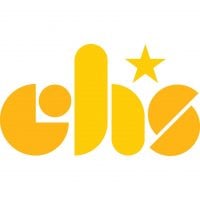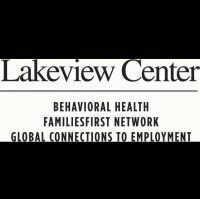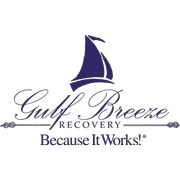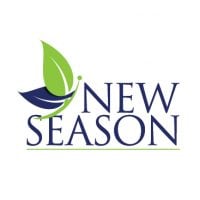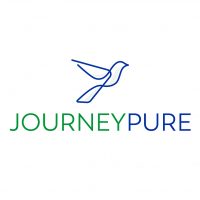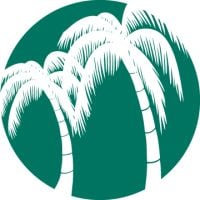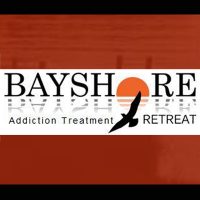Lakeview Center - Fact Team
Drug Rehab Center in Pensacola, Florida
The Lakeview Center Fact Team provides comprehensive dual diagnosis and mental health services with evidence-based therapies, CBT and long-term residential and outpatient treatment to create a safe and supportive environment for clients.
Multiple patients have reported Lakeview Center - Fact Team as permanently closed.
Research other rehabs in Pensacola, Florida, or get help finding an open facility.
About Lakeview Center - Fact Team in Florida
Lakeview Center - Fact Team, located in Pensacola, Florida, is a dual diagnosis, mental health treatment facility that offers support and treatment for individuals looking to overcome addiction and substance abuse. With a focus on dual diagnosis, Lakeview Center - Fact Team specializes in providing care for individuals who are struggling with both mental health issues and substance abuse disorders. They offer outpatient levels of care, allowing individuals to receive treatment while still maintaining their daily responsibilities. Lakeview Center - Fact Team is affiliated with Lakeview Center, a reputable organization committed to helping individuals achieve lasting recovery and improve their overall well-being.
Lakeview Center - Fact Team provides a range of services and treatment methods to address addiction and substance abuse. Through their dual diagnosis approach, they aim to understand and treat the underlying mental health conditions that may contribute to addiction. They offer outpatient levels of care, allowing individuals to attend therapy sessions and receive support while living at home. Their treatment methods may include individual counseling, group therapy, psychiatric evaluation, and medication management. Lakeview Center - Fact Team takes a holistic approach to treatment, considering not only the physical aspect of addiction but also the emotional, social, and psychological well-being of each individual.
Genders
Ages
Modality
Additional
Conditions and Issues Treated
A “dual diagnosis” is when the individual has two medical issues at the same time. The top co-occurring mental disorders with addiction are depression, anxiety, ADHD, bi-polar disorder. Addiction is also considered a mental illness that is not a choice but rather a medical condition. Addiction can be caused by any number of underlying issues.
Dual diagnosis is provided by Lakeview Center - Fact Team to treat addictive tendencies as well as any untreated mental illnesses. This ensures successful long term health and recovery for patients after treatment has been completed.
Dual diagnosis is provided by Lakeview Center - Fact Team to treat addictive tendencies as well as any untreated mental illnesses for people in Florida. This ensures successful long term health and recovery for patients after treatment has been completed.Levels of Care Offered
This center offers a variety of custom treatment tailored to individual recovery. Currently available are Dual-Diagnosis, Outpatient, with additional therapies available as listed below.
Outpatient programs at Lakeview Center - Fact Team, the Pensacola resident can live with their family while continuing with their job or studies. Treatment includes educating the patient on drug abuse, medications, and counseling sessions at the individual or group level. Outpatient treatment plans cover diagnosis, detoxification, management, and counseling. They are a popular option for those who have graduated from inpatient facilities.
Therapies & Programs
Individual therapy is a form of counseling where you meet with a trained professional one-on-one. Meeting with a therapist in this setting allows for a personal and trusting relationship to be built. This allows the patient to open up about sensitive or private issues they may not feel comfortable discussing in a group. Individual therapy helps identify the root causes of your addiction, which can help prevent relapse.
Couples therapy for drug addiction is a unique form of therapy that allows family members to work through the emotional issues of their loved one’s addiction together. Family members can support each other while learning how to cope with the addiction and encourage healthy changes. The two will work with a therapist to learn how the addiction affects themselves and the relationship.
Family therapy is often done alongside drug treatment to help addicts stay sober. The goal of family therapy for drug addiction is to create an environment where communication can happen without judgment, hostility, or blame. The therapist will sit with the family so they can learn how to communicate differently and provide new tools for dealing with emotions so that people don’t want to drink or do drugs. It’s important for families to focus on relapse prevention plans during treatment so that if the addict feels like they want to use again, they’ll know what steps they need to take together to prevent it from happening again in the future.
Group therapy sessions are another common addiction recovery service. These group sessions typically involve six to 12 addicts who meet regularly with a trained professional for support and guidance.
During these sessions, the group shares their experiences with one another and provides feedback that can help each member avoid relapse or overcome specific obstacles they are facing in their recovery process. With this type of support and guidance, addicts can feel like they are part of a community that understands their struggles and will help them get through the hard times.
Many people struggling with drug addiction have experienced some form of trauma in their lives. It is crucial that these individuals seek out professional help; otherwise, their drug abuse and addiction will likely continue.
Therapists and counselors at drug treatment centers employ several treatment programs to help people struggling with drug addiction, including trauma therapy. Trauma therapy helps people dealing with addiction by allowing them to confront the traumas of their past and move past them.
It is important to note that trauma therapy should not be confused with PTSD (post-traumatic stress disorder). Rather, it is used to treat the effects of trauma, which are often at the root of addiction.
Cognitive Behavioral Therapy (CBT) focuses on the underlying thoughts and behaviors that caused the problem of addiction in the first place and may cause a relapse. Negative feelings are common in drug abuse disorders, but they can lead to co-occurring disorders if not recognized. CBT involves strategies that help to change the behavior pattern by restructuring negative thoughts into positive ones. It helps to remove these feelings, and it provides long-term benefits. Also, CBT promotes self-awareness and self-control. It can be administered as a monotherapy or as part of combination therapy.
CBT can improve the patient’s mood, reduce drug cravings and boost success rates on treatment plans. Regular practice can help individuals handle negative attitudes, thoughts, and feelings without turning to drugs or alcohol. The core belief of Cognitive Behavioral Therapy (CBT) is that one’s moods, behaviors, and actions are all connected. Individuals can improve their quality of life using CBT. It helps addicts understand the patterns of thought and feelings that cause them to use drugs or alcohol and develop a healthy response.
Lakeview Center Associated Centers
Discover treatment facilities under the same provider.
- Lakeview Center - Road to Recovery in Pensacola, FL
- Lakeview Health - Corporate Square Blvd in Jacksonville, FL
- Lakeview - Avalon Center in Milton, FL
- Lakeview Center - Adult Outpatient Counseling in Pensacola, FL
- Lakeview Center - Shalimar in Shalimar, FL
Learn More About Lakeview Center Centers
Additional Details
Specifics, location, and helpful extra information.
Pensacola, Florida 32501 Phone Number(850) 202-0387 Meta DetailsUpdated November 25, 2023
Staff Verified
Lakeview Center - Fact Team Patient Reviews
There are no reviews yet. Be the first one to write one.
Pensacola, Florida Addiction Information
Florida is one of the nation's epicenters for substance abuse and drug-related overdoses. In 2014, around 410,000 Florida residents were addicted to drugs and alcohol. Over the last 10 years, 12% of all deaths in the state were attributed to substance abuse. Treatment admissions for alcohol reached 24,329 patients in 2016, and 2.5% of Florida high school students admitted to using crack cocaine.
In Pensacola, FL, marijuana is the most commonly abused drug, followed by illicit prescription drugs. There were 967 overdose deaths with cocaine as the primary substance involved in Pensacola, Florida in 2014. 7.8% of Pensacola, FL residents met the criteria for illicit drug dependence or abuse in 2014. Treatment options are available in Pensacola including inpatient rehab centers or outpatient rehab centers, 12 step programs, and other treatment modalities.
Treatment in Nearby Cities
- Saint Cloud, FL (388.5 mi.)
- Perrine, FL (535.9 mi.)
- Madeira Beach, FL (323.4 mi.)
- Citra, FL (314.3 mi.)
- De Bary, FL (370.1 mi.)
Centers near Lakeview Center - Fact Team
The facility name, logo and brand are the property and registered trademarks of Lakeview Center - Fact Team, and are being used for identification and informational purposes only. Use of these names, logos and brands shall not imply endorsement. RehabNow.org is not affiliated with or sponsored by Lakeview Center - Fact Team.

